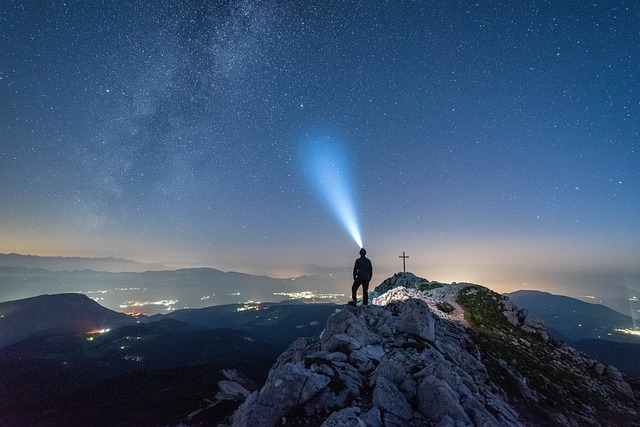Site last updated on February 20th, 2026.
Site last updated on February 20th, 2026.
Click on the quote below to read the article...
Inspirationals
Feeling frustrated? Bored? Stressed 0ut? Insignificant? Overworked? Disillusioned? Humiliated? Or condemned? Articles below can help to turn your failures and trials into successes, improve relationships, encourage growth, lead to greater mental health, and give hope, purpose, enthusiasm, faith, and a bigger vision. Try a few and see if they don't put you back into God's picture.





The importance of hope is often under-rated in a religious environment where faith and love are assumed to be the ultimate signs of one's spiritual standing with God. In this article, encouragmenet is given to those who struggle with the injustices and uncertainties of life.





Every mountain has slopes, and many of them are slippery. But what really matters is whether you are goin up the slop or sliding down.





A truly inspiring letter, written by someone who had just begun to turn his back on all that he had achieved through fellowship with other believers in a Christian community that was committed to the teachings of Jesus. As he came to himself, he wrote with such clarity that it could help any of us going through similar temptations.





An account of one of our most miraculous experiences, as God intervened to save several of us from being stoned to death while working in India. We don't generally believe in publicising miracles, but this one, like the walk across the Nullarbor needed to be recorded for posterity.
(See also Walk Of Faith, and Eight Ways to Know God's Will.)




A Bible study on the dangers (and potential) of both blessings and trials. Ups and downs are the stuff from which progress evolves... or revolves, as illustrated here.
(See also Burnout? and Oh, for a Really Good Day!)




This article describes three simple mental images which can help us to get our religious disagreements, personal trials, and need for obedience to God into perspective.
(See also Divine Love, Let Go and Let God Do It!, and The Cross.)
by "Graduate C"
Do you struggle with apathy or lukewarmness? Then this article is for you!
Splash your face with cold water and wake up to yourself! Getting out of the comfort zone is the best thing for you.




A short article which features a simple exercise for improving communication, even with your worst enemy.




Giving in to "fate" can be "fatal". We can change our fate, but only if we are willing to give it our utmost effort. A New Year's Eve 1997 message.
(See also Positions Vacant, Eternal Salvation, and Resolutions.)




An article of caution against becoming so obsessed with faults that we forget to appreciate the roses.




Cherry offers tips for people who suffer from low self-esteem, to build up confidence without becoming proud. Recognising God's Spirit in ourselves and in others need not blind us to faults and the need to grow. But denying God's presence in ourselves and others can be both destructive and dishonest.
(See also Positive Thinking, The Revolution, and In Spirit and in Truth.)




Do we try to show love, to prove we are Christians, or do we just naturally love because we are Christians? If the latter is true, then how do we become such loving Christians in the first place?




Do you have trouble understanding or getting along with your father? It could be a reflection of your relationship with your heavenly Father. Good "Father's Day" reading!
(See also Adam's Sin, The Spirit of Eve, and The Cuddlies.)




Time is life; so 'killing time' is just slow suicide. Learn to invest every moment in things that count for eternity. This study, originally called Redeeming the Time, is written in Easy English.
(See also Time, Measure it, and Lombardi Finds a Job.)




The hardest thing God asks anyone to do is just to "Let Go!" Living by faith is that easy.
(See also Fear of Poverty, The Forsake All Principle, and Smile, God Loves You!)



Our fear of doing the wrong thing may strangle the voice of God's Spirit, and make us useless to God. Trying too hard to stay "on the rails" may be what bumps so many of us off. We may need to drop our rules and start all over... like little children.
(See also Know-It-Alls, Lest You Fall, Fear of the Devil, and Honest Doubt.)



Calling someone stupid or crazy does not help anyone. This article looks at how irrational it makes the accuser look when he or she lashes out in this way.



Lost your zest for life? Read this and discover how to keep life full of excitement and adventure.
(See also Faithfulness, Hearing from God, and Aim for the Sky.)
[b]Thine is the Power, Part 2
[/b]
[i](Note: I wrote an article with the same name about a year ago. With my failing memory, there may be more of this in future! Anyway, this says some things that the other one did not, so I thought I would go ahead and post it as Part 2.)
[/i]
At the end of the Lord's Prayer, sandwiched between recognition that the kingdom of heaven and all glory belong to God, is a declaration that all power (strength) ultimately comes from him as well. This is, perhaps, the most comforting line in the entire prayer, as it recognises God's role in any goodness that we might ever hope to accomplish.
There is a great old hymn ("Just a Closer Walk with Thee") that includes two relevant lines: "I am weak, but thou art strong. Jesus, keep me from all wrong." Whatever faults, failings, or weaknesses we have, there is comfort that comes from knowing that they can be overcome by God's omnipotence... whether it be his grace to forgive or his strength working to enable us to do what needs to be done.
It is like the story of the mouse and the elephant that cross a bridge: boom! boom! boom! At the other side, the mouse looks up at the elephant and says, "Boy, we sure shook that bridge, didn't we?"
Declaring that all power comes from God emphasises our total need for him at all times. As Paul wrote (I Corinthians 1:26-27): "You see your calling, brethren, how that not many ... mighty ... are called; ... but God has chosen the weak things of the world to confound the things which are mighty."
Some have falsely assumed that this declaration of our helplessness opens the door for us to give up trying to be good altogether, when quite the opposite is true. Whatever tiny grain of strength we might have has come to us from God to begin with. We are duty-bound to use that strength wisely. By planting that tiny seed of strength, by doing what we are able to do, and then by crying out to God for more of his power, we will soon find ourselves growing in his strength.
The Lord's Prayer identifies God the Father as the source of all power. Jesus said that we would receive power from the Holy Spirit (Acts 1:8). And Paul gives us that great Superman clause when he says, "I can do all things through Christ, who strengthens me." (Phillipians 4:16) So we see that the Father, the Son, and the Holy Spirit, are all there to enable us to do God's will.
It is comforting to know that this power does not ultimately come from ourselves. All we can do is all we can do; then the mighty power of God must kick in. Sometimes it can come dramatically, like a shot of heavenly adrenaline; but at other times he works more slowly, allowing us time to experience our own weakness sufficiently to appreciate the truth of our dependence on him.
Because our strength comes from God, we need to keep the channels of communication open with him, through prayer and through obedience as he enables us to obey. Sometimes I feel like all I can do is to beg for more strength, when I have come to the end of myself. It is not enough that I know what I should do; I need his strength to enable me to do it.
In some churches, people pray each week for forgiveness for the things they have done which they should not have done and for the things they have left undone which they should have done. Paul expressed this same frustration when he cried out, "The good that I would I do not: but the evil which I would not, that I do...
Oh wretched man that I am! ... With my mind I serve the law of God, but with the flesh I serve the law of sin." (Romans 7:19, 24-25)
Returning to the words of that great hymn, it goes on to say, "I'll be satisfied as long as I walk (Let me walk.) close to thee." It does seem that God wants to constantly remind us that he is the source of our strength, in order to get us to reach out to him just as constantly, "praying without ceasing" for more of his strength, thus creating this closer walk with him.



A reminder of the fact that we ultimately depend on God's strength for all that we do.



Willpower is important; but it lets us down at the worst times. God wants our will, but we need his mercy too, because willpower is not enough to keep us going when things get tough.
(See also Lest You Fall.)



Jay looks at the need for humble servants to get so many of the practical chores done in the kingdom of heaven.



A very short article on the need to get things right with one another before we even start to think about "working for God".



You can turn today into an historic milestone just by listening! Don't settle for second best, when you can have so much more!
(See also Positions Vacant, Resolutions, Change, Fear of the Devil, True Greatness, and Eternity.)



People who live together can easily start to "dislike" one another, just by focusing on faults. But we Jesus Christians have so much in common that, it should be easy for us to re-discover our first love for one another, and to spiritually fall in love again.
(See also Why You're Special and Your First Love.)



Are we a tiny handful of misfits, as we claim to be? Are we as big as our enemies say we are? Or could we be even bigger? It's all a matter of how you look at it.
(See also A Sense of His Story, The Kingdom of Heaven or Religion?, and The Virgin Army part 1.)



Simon challenges us to turn away from lukewarmness and defeatism, to make a choice and stick with it for our own good.



Which events happening in our lifetime will distinguish the present from the rest of history? We need to look for God's perspective on human history.
(See also Thy Kingdom Come, Endtime Prophecy and the Revelation of Jesus Christ, and Charismaniacs.)



This article by Cherry explains how it is in our own best interests to forgive others and even to forgive circumstances.
(See also Bitterness, and From Bitter to Better.)



Is there any logic in losing one's faith when disasters strike? Or are there better ways to turn tragedies into triumphs?


When the glamour fades, only the faithful remain. If we keep our eyes on an eternal goal, the routine takes on new meaning. We'll see our place in God's bigger plan.
(See also Boredom, and Those Other Apostles.)


A short essay on how bitterness stems from an inability to accept our own shortcomings.


Imagination is essential to follow the Golden Rule, show compassion to the poor, plan your day, or get right with God.
(See also Eternity, A Sense of His Story, Learning to See, and Pictures that Bring Perspective.)


Are there issues that you fear confronting, either with others or with yourself? Those "elephants" can cheat you out of a full life, and personal integrity, as you pretend to be something that you are not. Facing the elephants may not be possible with everyone, but there need to be times when (and people with whom) you can confront your elephants and at least recognise their existence... for your own sanity, if for no other reason.


A train ride through some mountains erupts in exclamations of praise for the many wonders of creation, and the wonder of life itself.


Cherry takes a closer look at the miraculous protection of God, both as we have experienced it, and as it is promised in scripture, to see if the two are consistent.

 Are the righteous ever forsaken? Suffering is not the same as rejection. We can survive, if we know that there is a purpose in what God has allowed to come our way.
Are the righteous ever forsaken? Suffering is not the same as rejection. We can survive, if we know that there is a purpose in what God has allowed to come our way. (See also Oh, for a Really Good Day!, and Burnout?)


This one by Cherry is aimed at the women, but there is something in it for everyone who has ever lost sight of the bigger picture in an obsession with a particular plan or project. It deals with perfectionism, fear of what others will think, the need for rest, and more.
(See also Fear of Public Opinion, and The Social Conscience)


Bitterness is a poison that sours the life of all who harbour it. Stop blaming others. Look for constructive solutions, if you want to live life to the full.
(See also Bitterness.)


Despite the title, this is really an article about pain and suffering. But a parallel is drawn between the law, work, and pain, to show that none of these is evil in themselves. The 'curse' in each case is an ATTITUDE related to these three realities of life.

A brief answer to the question so many ask when they experience pain or suffering. It may shock some of you.
(See also No Pain, No Gain, Hard Decisions, and God's No Fool.)

Every spiritually backward step that we take comes from one source... lack of faith in God's existence. Many of us who claim to believe in God live like he does not exist, and like he does not love us. Turn back to God, and everything else will fall back into place.
(See also Pictures that Bring Perspective, and Smile, God Loves You!.)

What happens when you have more "light" than you have "strength" to walk in? This study from The Lord's Prayer reminds us that God is our ultimate source of power to do what is right.

Making the call of God too special often becomes an excuse for thinking it is only for the other guy; whereas taking the call of God too casually can make us think we are only responding to a human invitation to join a human organisation. This article calls for us to examine both perspectives to be sure that we are listening to the right voice and responding in the right way.

Do you feel overlooked, while others get all the glory? Are you frustrated by others' indifference to your spiritual gifts? Be careful that you do not judge others by your own suppressed vices. Don't let bitterness destroy your relationship with other believers.
(See also Bitterness, and From Bitter to Better.)

While we should do all we can to overcome those areas of weakness in our lives which are hardest to overcome, it pays to remember that we are all struggling with similar weaknesses, and we all fail at times.

Emotional maturity comes when we learn to control emotions in accordance with principles and values, rather than just repressing them to avoid embarrassment or punishment. Cherry lists four distinctly human traits that need to be developed if we are to become emotionally mature. (See also Imagination, The True Conscience, and Constant Prayer

A very short lesson on this line from the Lord's Prayer, reminding us that it is God's kingdom and not ours that is going to last forever.

Deliverance from pride is not evolutionary. It is revolutionary... and spiritually "violent", or it is a farce. If we are not consciously dealing with our pride (i.e. smashing it), we are defending it.
(See also Pride, Self-Righteousness, and Advice for Counsellors.)

Cherry compares our lack of popularity, and our small size and simplicity with that of the cockroaches, and she suggests that it could be these same qualities which will enable us to survive the dark days which lie ahead.
(See also Keep on Planting, Faithfulness, Cannibals for Christ, Thirty is a Dangerous Age, and Fear of Public Opinion.)
Are you ready to sacrifice your own opinions and traditions for the teachings of Jesus? Even your ideals must take second place to those that Jesus felt were the important ones. If not, you are headed for a fall.
(See also Lest You Fall, and Losing Your Identity.)
(See also Lest You Fall, and Losing Your Identity.)
Dave indulges himself in a rave about his children in this reminder that greatness is not outside the reach of the average person. We can get there if we will let God change us. (See also Positions Vacant, and Aim for the Sky.)
A comparison between Sister Teresa and Sister Diane. Few could follow in the footsteps of one, while almost all of us could imitate the other. We could spend our lives wishing we were a prince or princess, or we could spend our lives being servants, and find with it immortality. Time to wake up from our fairy tales and start learning the lessons of true love.
(See also Faithfulness, and True Greatness.)
(See also Faithfulness, and True Greatness.)
Not all stress is bad. What makes it bad is the feeling that we cannot escape it. Worry about what others think is one of the worst forms of stress. Learn to recognise and overcome it.
(See also Leaders who Serve, and Burnout?)
(See also Leaders who Serve, and Burnout?)
There is always more than one way of looking at events. People with faith will see good things and others will just see the negatives. Perhaps miracles are just a matter of perspective?
The more we find out about how The Universe works the more we should become humbled by what we don't know. Unfortunately that does not seem to be the case within the majority of the scientific community. Our intelligence is less than that of an insect compared to God!
Disillusionment is everywhere today. We need a way to turn it into something positive. Can the "illusions" be replaced with the truth? We need a bigger vision than just another organisation with the potential for all the same problems.
(See also Convenient Doctrines, and Without Guile.)
(See also Convenient Doctrines, and Without Guile.)
Christmas Day, 2009
The Pasadena College Experience
By Dave
A recent discussion with one of my brothers has led me to put on paper a testimony that has, for some strange reason, never been recorded officially in the history of our community. It is similar to the article about miraculous intervention that saved our lives in India many years ago, which we called "The Great Escape", in that it is a bit longer than most other articles we have written, and it also constitutes a "testimony" rather than "teaching", which often confuses people into thinking that they need to experience something similar in order to be considered "Christian". But, with the understanding that this is not something that everyone needs to experience, I will tell that story now.
During my final year of high school (1961-1962) something happened at Pasadena Nazarene College, in Pasadena, California, that went down in the history of the Nazarene Church as spiritually significant. A group of freshmen (first-year) male students at that institution had been praying for "revival" for a number of weeks, and it had built up serious tension between the "believers" and the "non-believers" staying in the freshman dorm, a very old building on campus which was affectionately known as "the cardboard palace". Some non-believing students living there had opposed the prayer meetings that were being held there over a period of several weeks, and they had taken to taunting the participants during those prayer sessions. However, toward the end of that period of concentrated prayer, those same non-believers had experienced strong feelings of fear about the meetings, and had taken to locking themselves in their rooms while the others were praying.
On one particular night (and I do not know the date, or even if it was in 1961 or in 1962) something momentous happened. The students who were locked in their rooms upstairs, felt an intense attraction toward the meeting being held downstairs, and they slipped out of their rooms and down the hallway toward the stairs which led to the ground floor. Leaning over the railing and straining their ears toward the sound of many male students praying out loud and all at once, they crept down the stairs one at a time and walked toward the door opening into the freshman lounge, where the praying was going on.
As each of them entered the room, the power of the Holy Spirit was so strong in that lounge that they fell, one by one, onto the floor and cried out in prayer for mercy and forgiveness from God for their actions. Some of the young men who had been praying there gathered around to pray for these new arrivals, and it was not long before these newly transformed young men left the room through a door at the other end of the lounge, and went to tell others on campus that something unusual was happening in that lounge.
All through the night a spontaneous sharing of people who had experienced the "revival" spread across the campus, as other male students were awakened and taken to the same door through which those first non-believers had passed. They too, would fall to the floor or experience some other physical manifestation of spiritual impact, and go through a powerful emotional experience which then led to them also going out the door at the other end of the room to bring in someone else. There was a steady flow of this nature throughout much of the night
By morning, much of the male population of the campus had been through "the Cardboard Palace" (officially "East Dorm") experience, and they were each wondering exactly what it all meant. At chapel in the college auditorium the next morning, the experience spread to female students at the college, as a great outpouring of God's Spirit on the student population of the college took place.
I had two personal contacts with that revival. My older brother, Ron, was a part of it, and so was my good friend Gary Enos, after whom my youngest son was named. Gary was one of the members of the initial prayer group, and Ron was an older (third-year) students who came to East Dorm sometime during the night. However, for me personally, 500 miles away, going through my final year of high school near Sacramento, California, it was frustrating to have come so close to what appeared to be a genuine "revival" in our denomination, without personally having the opportunity to experience it.
The next school year (1962-1963) I boarded in that same dormitory, and quickly joined a new prayer group that was asking God for a repeat of what had happened the previous year. Together we prayed and prayed for weeks and months, with what appeared to be no significant results. However, my own experience of those weeks and months were extremely significant, and that is what I want to tell about here.
Initially, I was hoping for the same spontaneous outpouring; but before long, I realised that what was most important was just that I personally experience something that was genuinely spiritual, and not just religious hysteria. I was studying psychology for the first time, and was deeply challenged by what I read. It seemed, through what I was reading in my psychology textbook, that everything I had experienced as a "born again, saved, sanctified, and satisfied" (Nazarene) Christian believer, could be explained away by simple appeals to psychology. I was the product of my parents' "faith", and if I had been born in a Hindu or Buddhist, or even an atheistic communist country, it was almost certain that I would have been just as dedicated to the beliefs of others (especially my family) in those countries.
Because I had felt, when I was only six years old, that God wanted me to be a "missionary", it was deeply important for me to know that what I was planning to do with my life was, indeed, based on genuine faith in God, and not that I was going to just become an ambassador for the denomination, culture and values of a very human society into which I had come by accident of birth.
I went over all of this in my prayer sessions, making it clear to God and myself that I really did not want to be guilty of preaching something that was not genuine. Some nights I would pray until I experienced something which might be called an emotional breakthrough. Other nights I would pray until I experienced some new thought or "revelation" about God or about myself. But on all such nights, I would step back, put on my "psychology" glasses and examine all that was happening inside my head. Over and over I had to confess that it could very easily be explained away. They were valid thoughts and valid emotions, but the bottom line was just that this could be ALL that they were... just my thoughts and my emotions.
I did not even know what it was that I was praying for; but I knew what I was NOT praying for. I was not praying for something that could be explained away through appeals to psychology textbooks. Surely an infinite God could work out what that would be without my thoughts or emotions playing a part in it, since those were the things standing between me and Him at that time.
Finally, it all came to a head one night, as I knelt on the floor in front of a seat in the East Dorm lounge, praying out loud at the same time that others around me were doing the same thing. As humbly as I knew how, I was presenting my official resignation to God as a missionary. I simply could not do an effective job as a missionary preaching something which I felt may or may not be real. I wanted truth and reality more than a superficial show of religious fervour.
Yet, somewhere in the middle of that prayer of resignation, it happened. The heavens opened and I saw God. I don't mean literally that I saw God... that was too much, but I had a vision of God holding me in his hands and me trying to tell him that I was leaving, that I was walking out, that I no longer believed in him. And he was smiling down at me as though I was just some stupid, inferior being that had been deluded into believing that his decision to walk out had anything to do with anything. I saw God in that way, and it overwhelmed me to the point where I thought it might kill me. What I experienced was definitely emotional. It definitely was an astounding revelation of a relationship that I had previously viewed as one based on my cultural and family biases. But it was more than that. Deep down within my own soul, in a way that would be inexplicable to anyone else, it was God revealing himself to me in a way that made me feel that my whole body was going to explode with gratefulness.
At some point in the proceedings, I remember asking God to turn down the volume on what was happening before it killed me. I literally could not contain it all. But I also remember promising, through my tears, "God, if you never give me another emotional experience or spiritual revelation again for the rest of my life, I could never stop believing in you after what I have experienced here tonight." By that point, I don't even know if I was saying those words with my lips, because I had so totally lost control of my voice; but I do know that I was saying them in my mind, and I remember them very clearly today. I meant it then, and I have continued to feel that way in the 47 years from that time to the present. I have had emotional experiences and doctrinal revelations over and over since then, but none of them ever compared to what happened that night... the night when I "saw God".
It was literally years (maybe decades) before I could speak verbally of the Pasadena College experience without breaking down in tears, it was just so powerful. For weeks afterwards, I walked around the campus as though I was in a super-strong impenetrable bubble, so aware was I that the presence of God was all around me. I remember one day, as I started to come ever so gradually down from the high, thinking that it was actually quite dangerous what I was going through, as I had this genuine belief that even trucks would bounce off me if they came near. Surely, if such a strong confidence had persisted, (I thought) one day I would step in front of such a truck and put the belief to a test which maybe even God himself did not want me to do. Of course, with hindsight, I feel that even that feeling of indestructibility, which might be called a delusion, was totally under God's control. Surely, if he could have given me the experience which created my superman-like feelings, then he could also protect me from hurting myself while I adjusted to my new-found faith.
Now, let me make some more general observations about that experience.
One of the first things that crossed my mind was the possibility that what I had experienced was something that Nazarenes called being "sanctified". There had always been talk in that denomination about "revivals", and I had always been frustrated at not having personally experienced such a thing. Evangelists and other preachers in the denomination would often give "altar calls" where members of the audience were invited to come forward and either get "saved" or get "sanctified". I embarrassed my family as, week after week, I would go forward, praying for such an experience. They did their best to explain to me that I had put a little too much faith in the glowing descriptions of what was supposed to happen when "going forward", and to convince me that I had already done enough to qualify as being "saved and sanctified". But now I had clearly experienced something that stood miles above anything I had ever experienced before. Had I been genuinely "sanctified"? Or was it something completely different? Surely I had a responsibility to explain to others how they too could find what I had found... IF it was a valid experience that anyone else could have.
But that is when I hit an impenetrable barrier. Quite apart from the fact that I could not control my emotions sufficiently to talk about what I had experienced, the thing that appeared to have triggered my life-changing encounter with God was that I had handed in my membership card as a Christian. How do you tell people that the way to find God is to try to bluff God into believing that you don't believe in him anymore? No, that was just not going to happen. Far better, in my reasoning, for others to struggle on faithfully doing their best (as my parents had encouraged me to do) than to risk them becoming atheists just for want of an experience such as I had gone through. I concluded that such an experience probably was not necessary for everyone. And I also concluded that there must be some valid reason why God had chosen to lead me to take such a dangerous step as to have let go of all that I had previously believed.
My mother, who had always had a very special relationship with me, claiming that God had revealed to her before I was born, that he was going to use me in some special way, was, around that same time, experimenting with pentecostalism, much to the chagrin of our local pastor. He eventually took the extreme step of relieving my mother of her membership in the church, on the grounds that she had erred into heresy by saying that the experience of "speaking in tongues" was a valid experience for Christians today. This same preacher could sense (and I'm not clear how he sensed it, since I felt that I was being both vague and quiet about what had happened to me down in Pasadena) that I had experienced a powerful spiritual experience. Although my father disagreed with my mother's pentecostal experiments, he was furious that the church had seen fit to expel her from the denomination because of her beliefs. My older brother, Ron, who had been through the East Dorm revival the year before, agreed with my father and disagreed with my mother. He spoke to the local preacher and then came to me, assuring me that he had convinced the pastor that whatever had happened to me at Pasadena College had NOT led to me speaking in tongues, and was, in fact, totally consistent with Nazarene doctrine. He was right about speaking in tongues, but I deeply resented him jumping to such a conclusion, and so I refused to put his mind to rest on that one, saying that it was none of his business whether I had spoken in tongues or not, nor was it the business of the pastor. Nevertheless, for our various reasons, our whole family all pretty much ended our official membership in the Nazarene Church around the same time.
That more or less ends my testimony on the Pasadena College experience. However, I want to explain further why I have chosen at this time to tell it, and that could end up taking nearly as long as what I have written so far.
It's Christmas here in the U.S. at the moment. I am visiting one of my younger brothers, Erwin, in Texas. Erwin has wrestled for years over the strange transformation that took place in my relationship with my mother, who recently went on record as saying that she thinks I am evil, and pretty much that I have been so since I was quite young, that I have, from my youth, always caused problems in churches, and that I have delusions about wanting to be more popular than Billy Graham.
Erwin asked me, quite seriously, when did I think that this change first started between me and my mother. He badly wants to believe that both I and my mother are genuine Christians. My immediate answer was that it started after Cherry and I married, and then moved to Australia, where, after a couple of years, we started to experiment with taking a literal approach to the teachings of Jesus. I had enthusiastically tried to share (by mail) my excitement about having discovered the teachings of Jesus with my mother at that time, only to have her totally snub me in response. Even to this day, she refuses to discuss the teachings of Jesus, and to regard them more or less as a heresy... i.e. a serious threat to her understanding of the "person" of Jesus, which she says is all that we need.
"But there were problems even before that," Erwin pointed out. He was correct. I had never been asked to pinpoint where the problem arose, and so Erwin took me backwards in my mind to find any earlier source of the tensions. I recalled how, just before Cherry and I moved from the U.S. to Australia (and that is a story on a par with "The Great Escape") my mother had pleaded with me to read a book on how to know whether you are a fanatic. Yes, definitely, there had been problems over Cherry and me believing that God could speak to us, even though they had not caused the dramatic turnaround in my mother's attitude toward me that came about much later. I had to agree with Erwin, that there was an earlier source of the turnaround on the part of my mother.
I have often described the extremely negative assessment that I have received from my mother in recent years (including statements from here that she curses the day that she ever gave birth to me) as having come from the fact that she lost that special relationship she had with a little baby who was going to be used by God in a special way, when she no longer ruled as the puppet mistress in that ministry. She had her own very specific restrictions on how virtually everyone must behave in order for her to regard them as "saved", and they have caused problems between her and other believers/relatives for decades; but this was especially true of her relationship with me. She had this overpowering belief that she was to be the one to dictate exactly what form my "special ministry" was going to take, and she had, at some point, totally lost that. I concluded that the thing Erwin was looking for was where that point was.
I now believe that what happened at Pasadena College had marked that break, even though it was not immediately apparent. As a result of my seeking for something more than what I had learned from my family and my culture, I had moved into a relationship with God where I could simply direct my prayers to him and be totally confident that he would hear. My mother was no longer my mediator. She no longer dictated what was right or wrong for me.
While Alice and I had, around the same time, both had spiritual experiences, hers did not seem to liberate her in the same way that mind had liberated me. I have never thought about it in exactly those terms before, and so I had not recognised the Pasadena College experience as the turning point in my relationship with her or with anyone else, but I now think that what happened to me in my relationship with her would happen to anyone who found an intense and deeply personal relationship with God. The world seems to be full of people and organisations that want to act as mediators for such people, and when they sense the overwhelming freedom of people who have that vital link with their Creator, it scares them.
As I said earlier, I do not think that it is necessary for everyone to have such an experience, and I would not even begin to profess that I know how they could get such an experience; but I do believe that to the extent (whether miniscule or infinite) that each of us works on and develops that personal relationship with God, it is going to influence our relationships with others, often in negative ways. People who are afraid to think outside the box/system, are afraid of people who do not share their fear.
While my mother herself was being referred to as a fanatic because of her pentecostal experience and her unwillingness to cave in to the interrogations of her pastor, she had felt deeply threatened by me having something similar that seemed to have changed my life even more significantly. My experience led, of course, to me concluding (years later) that the teachings of Jesus are the cornerstone on which to build our lives, our denominations, and our theology. Certainly my mother's steadfast refusal to even discuss the teachings of Jesus with me or other members of our community (and the almost universal fear that our detractors have to enter into similar discussions) does indicate that what made all the difference was our commitment to the teachings of Jesus. Nevertheless, we cannot escape the importance of that personal relationship and commitment to Jesus which started it all for me, and which eventually led each one of us Jesus Christians to make such a commitment to his teachings... a commitment which ultimately transcends family ties, church ties and even national ties. And for those who do not share such a commitment, our freedom in Christ is a threat even before the teachings of Jesus come into the equation.
Those are my conclusions on re-thinking the Pasadena College Experience.
"Testimonies" are interesting (and many will find this one extremely interesting), but this article has not been given any stars simply because it IS a testimony, and, apart from stressing the importance of having a personal relationship with God, does not provide a formula that will work for everyone.
Robin reflects on the role of faithfulness in the lives of all great people.
(See also True Greatness.)
(See also True Greatness.)
We need to control our emotions; but burying them can be psychologically and spiritually damaging. Here are five tips for dealing with frustrations in constructive ways.
(See also Repression vs Control, Disagreements, Sex Sense, Heavy Burdens and Difficult Yokes, and Wanking, The Last Taboo.)
(See also Repression vs Control, Disagreements, Sex Sense, Heavy Burdens and Difficult Yokes, and Wanking, The Last Taboo.)
Update to this article: Dave later learned that he was suffering from full body pain as an allergic reaction to medication that he had been taking. He fought hard not to give in to the pain for about a year before discovering relief. But the lessons taught in this study can be helpful in terms of any kind of discomfort that threatens to sideline us.
(In Easy English) We miss the blessings that God has for us when we add our rules to his rules. We must drop our rules in order to have the strength left to obey God's rules.
(See also Smile, God Loves You!, Amazing Grace, and Having a Great Time: Wish you were Here!)
(See also Smile, God Loves You!, Amazing Grace, and Having a Great Time: Wish you were Here!)
The cross of Christ is a reminder of death and martyrdom, symbol of truth and confidence, and dividing line between religion and reconciliation. All of this on top of it offering us salvation!
(See also Prophets, Martyrs and Saints, The Blood of the Lamb, Jesus the Revolutionary, and Eternity.)
(See also Prophets, Martyrs and Saints, The Blood of the Lamb, Jesus the Revolutionary, and Eternity.)
If you think we are teaching salvation by works, or that we don't understand the doctrine of the grace of God, then read this one. Being right with God requires a constant awareness of our own unworthiness.
(See also Self-Righteousness, and Amazing Grace.)
(See also Self-Righteousness, and Amazing Grace.)
These are some of the most helpful and inspirational verses that we have found in the Bible.
Most New Year resolutions are eventually broken. But nothing ventured, nothing gained. This is a plea for people to keep trying. Comments on our experience with monthly resolutions.
(See also Empowerment, and Aim for the Sky.)
(See also Empowerment, and Aim for the Sky.)
A short Christmas message about demonstrating our love by giving our selves, as God has done for us. Draws a comparison between the words communication, communion, having things in common, and living in community.
(See also The Xmas Spirit.)
(See also The Xmas Spirit.)
In this personal testimony, Paul chronicles how his obsession with death has been transformed from one of depression to one of meaning and purpose.
(See also Positive Thinking, and Boredom.)
(See also Positive Thinking, and Boredom.)
One line in the Lord's Prayer puts an end to claims that God is obligated to forgive us regardless of how we behave. Bitterness is going to send many of us to hell.
(See also Bitterness, and As We Forgive Others.)
(See also Bitterness, and As We Forgive Others.)
An expression of appreciation by Dave to those who have remained faithful, while others have fallen away. The key has been that they accepted criticism, and tried to be honest about their weaknesses.
(See also Criticism.)
(See also Criticism.)
The prodigal son learned a lot through his mistakes; but it does not mean that we should all become prodigals. More can be accomplished through faithfulness; and a lot of pain and suffering can be avoided as well.
(See also The Fall, Deception and Backsliding.)
(See also The Fall, Deception and Backsliding.)
Robin writes from deep personal experience, in questioning whether what we call burnout may actually be a spiritual test, leading to greater victories. The same "fire" that burns us out may also purify us.
(See also Stressing Out!, Faithfulness, Faithfulness: Some Thoughts, and Oh, for a Really Good Day!)
(See also Stressing Out!, Faithfulness, Faithfulness: Some Thoughts, and Oh, for a Really Good Day!)
(Formerly Anger vs Sin) What should be our attitude when people hit back and reject our offers of peace?
(See also Divine Love, and Reject Us, Reject God.)
(See also Divine Love, and Reject Us, Reject God.)
Conviction includes a constructive plan for change; and condemnation does not. We are neither as bad nor as good as the devil tries to tell us we are. And almost no one ever tries to be bad; it just happens. These are a few of the words of wisdom in this little article.
(See also Resolutions, and Change.)
(See also Resolutions, and Change.)
Why settle for minimal obedience to Jesus if we can have something better? There are some disciplines that are not required of us, but which can be used if we want the best that God has to offer.
(See also Fasting Without Ceasing, and Two Witnesses, part 2.)
(See also Fasting Without Ceasing, and Two Witnesses, part 2.)
This article has relevance for married couples, and for your personal relationship with God; but it primarily relates to our loss of appreciation for fellow Christians, when too much familiarity can lead to contempt.
(See also Liking and Loving, Divine Love, Space Without Spice, and Divisions - Part of God's Plan?)
(See also Liking and Loving, Divine Love, Space Without Spice, and Divisions - Part of God's Plan?)





























